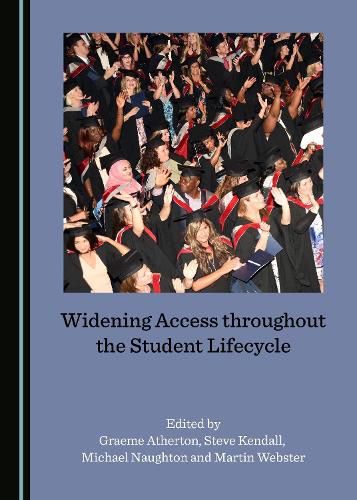Readings Newsletter
Become a Readings Member to make your shopping experience even easier.
Sign in or sign up for free!
You’re not far away from qualifying for FREE standard shipping within Australia
You’ve qualified for FREE standard shipping within Australia
The cart is loading…






Access to higher education (HE) by social background in England is profoundly unequal. These inequalities, however, are not confined to socio-economic background, nor just to entry into HE. Retention rates, degree outcomes, and post-HE employability all differ significantly by socio-economic background, gender, ethnicity and disability.This collection brings together leading contemporary thought and research on how to address inequalities in participation in HE across the student lifecycle . It highlights a broad range of widening access practice, including chapters on financial support, mature students, pedagogy, part-time study and evaluation techniques. In concluding, it argues that there is a need for widening access professionals, with an in-depth understanding of the learners with whom they work, operating at each stage of the students’ journey. This means that there is a crucial role for regional and national networks to enable these professionals to share practice and facilitate greater collaboration across the education sector to improve equality in higher education.
$9.00 standard shipping within Australia
FREE standard shipping within Australia for orders over $100.00
Express & International shipping calculated at checkout
Access to higher education (HE) by social background in England is profoundly unequal. These inequalities, however, are not confined to socio-economic background, nor just to entry into HE. Retention rates, degree outcomes, and post-HE employability all differ significantly by socio-economic background, gender, ethnicity and disability.This collection brings together leading contemporary thought and research on how to address inequalities in participation in HE across the student lifecycle . It highlights a broad range of widening access practice, including chapters on financial support, mature students, pedagogy, part-time study and evaluation techniques. In concluding, it argues that there is a need for widening access professionals, with an in-depth understanding of the learners with whom they work, operating at each stage of the students’ journey. This means that there is a crucial role for regional and national networks to enable these professionals to share practice and facilitate greater collaboration across the education sector to improve equality in higher education.